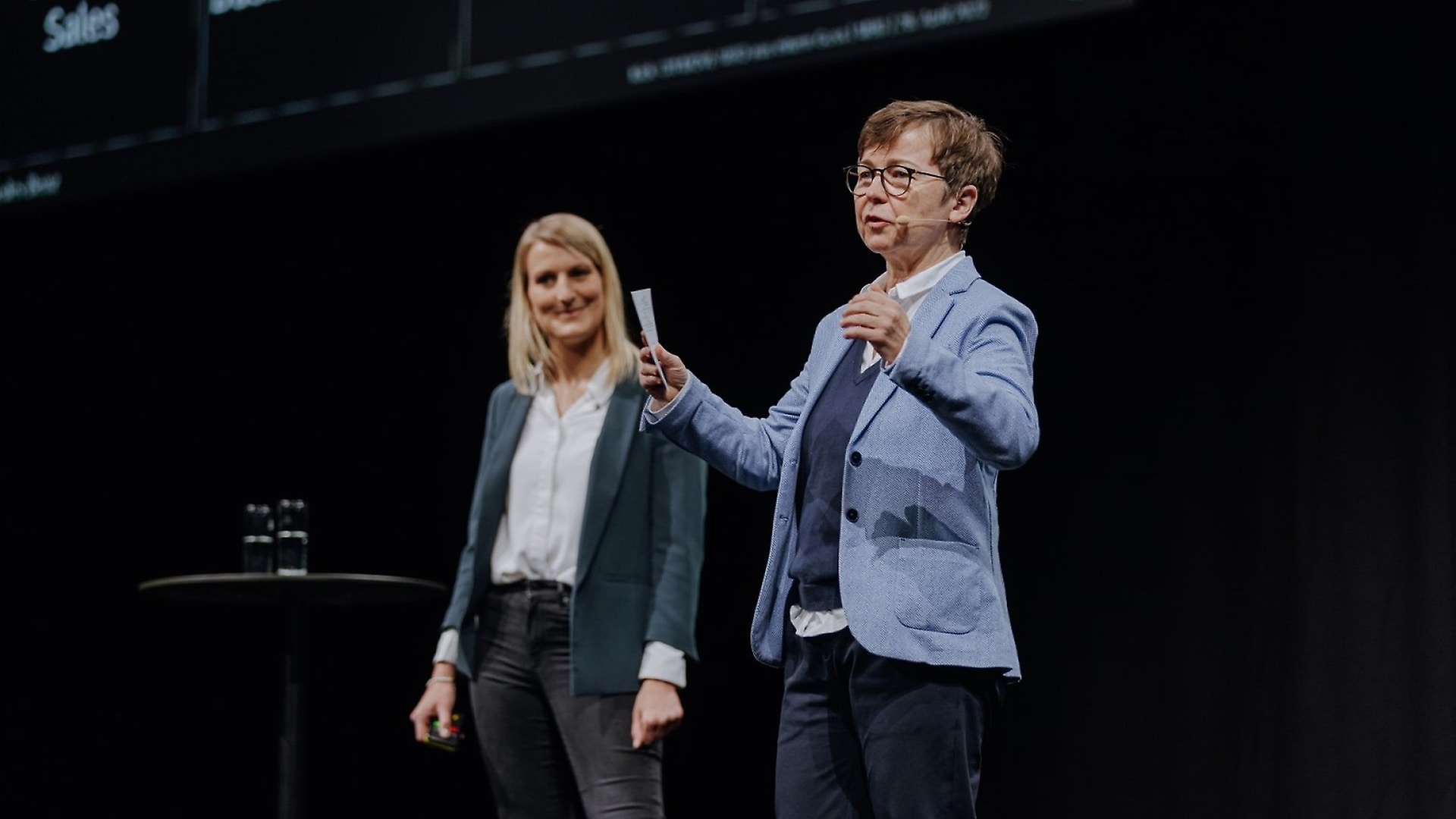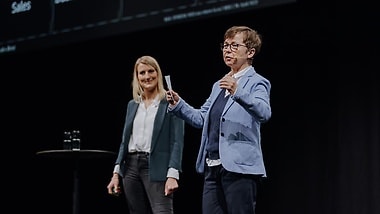Heike, Alexandra, when did you come out in your work environment? What were the reactions?
Heike Hartrath: I used to work at a university. There, my sexual orientation was not an issue. When I joined the company at the end of the 1990s, I had to deal with this for the first time. A friend advised me at that time that I should not immediately say that I am a lesbian since the company was conservative. I initially followed this advice. I invented Frank, a fictive significant other, to be able to chat about my weekends and holidays. Things went on like this for about nine months, and then I asked myself "what am I doing?" I'm happy with myself and my life. I don't want to have to hide this away. From then on, I told people with whom I was close to at work that I lived together with my partner, who is a woman. The response from everyone was unanimously: "Oh. And?" It simply was not an issue for them.
Alexandra Boavida: It was a similar story for me. When I started my career many years ago outside of Mercedes-Benz, homosexuality was an absolute taboo in society. At some point, when I got to know people better in my work environment and came to trust them, I came out to them. Over the course of my career, I have worked for a wide range of companies. The thing that these companies all had in common was their values and moral standards, which represented mine – for example regarding diversity and equal opportunities for all. I chose these organisations as they allowed me to be myself and not compromise myself for a career. I don't think that I would survive in a company that doesn't have these values. When I was still working in retail within Mercedes-Benz, there were customers for whom I knew that my homosexuality could be an issue, which is a reality outside of the corporate structures. There were times when I was asked about my husband and my answer would be representative of the individual I was speaking with, as it was “the right thing to do”. I however got to a point where I decided to answer the question depending on how I was feeling on that day, as sometimes I didn’t want to have to come out for the tenth time unknowingly.
,xPosition=0,yPosition=0.5)




,xPosition=1.0,yPosition=0)
,xPosition=0.5,yPosition=0)